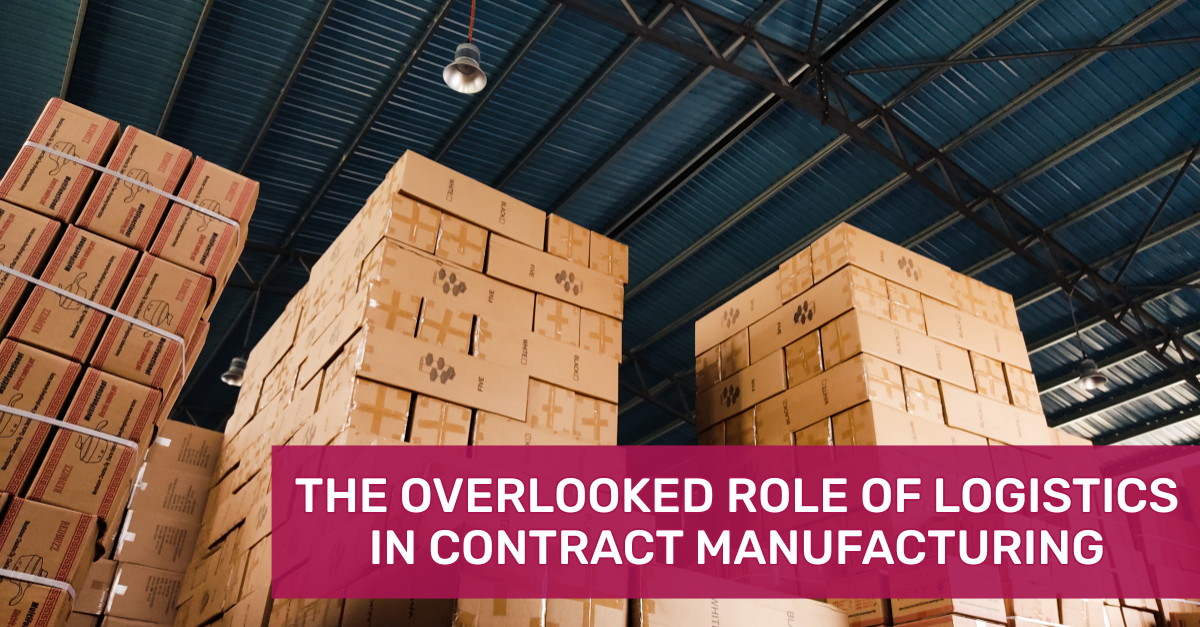Factory Line Reliability: The Overlooked Role of Logistics in Contract Manufacturing

When people think about contract manufacturing, they often picture factory floors buzzing with activity — lines of equipment, skilled workers, and tightly choreographed production schedules. What’s less visible, but equally critical, is the logistics network that feeds those lines. Behind every reliable factory operation is a supply chain that delivers the right materials, in the right condition, exactly when they’re needed.
Why Reliability Matters on the Factory Line
For contract manufacturers, reliability isn’t a luxury. It’s a business model. Clients depend on them to produce consistently, on time, and at scale. A single delay in raw materials or a missing shipment of high-value components can ripple through the production schedule, leading to missed deadlines, wasted labor, and dissatisfied customers.
Downtime in a factory line isn’t measured just in hours — it’s measured in millions of dollars of lost opportunity. That makes logistics not a supporting role, but a central driver of performance.
Logistics as the Invisible Backbone
Precision transportation, secure warehousing, and services like kitting and cross-docking aren’t simply operational add-ons. They are the backbone that keeps production steady. If freight arrives late, damaged, or without clear chain of custody, it isn’t just a logistics failure — it’s a production failure. In contract manufacturing, the two are inseparable.
Reliability in logistics is built on:
- On-time performance that keeps production schedules intact.
- Chain of custody protocols that guarantee trust at every handoff.
Lessons from High-Stakes Industries
Consider the way hyperscalers and semiconductor firms operate. Their timelines are unforgiving, their equipment sensitive, and their costs of downtime staggering. The logistics systems that support them must provide both speed and resilience.
That means more than just trucks on the road. It requires temperature-controlled environments, white glove handling, and the flexibility to adjust shipments as demand shifts. When logistics providers can flex with these realities, they protect the integrity of the factory line itself.
The Strategic Gap
What’s striking is how often logistics is treated as a secondary concern in strategic planning for contract manufacturing. Investment goes into machinery, facilities, and workforce — all of which matter — but without a logistics strategy built for precision, those assets can’t perform at their potential.
Reliable output depends on reliable input, and input depends on freight moving securely and efficiently across every handoff.
Logistics as a Differentiator
In today’s environment, supply chains face constant pressure from global disruptions, fraud, and capacity crunches. The manufacturers who will thrive are the ones that recognize logistics as a strategic differentiator. It’s not just about lowering transportation costs; it’s about protecting uptime, meeting client commitments, and scaling confidently.
For contract manufacturers, the right logistics partner ensures:
- Seamless integration between supply chain and production.
- Resilience when disruptions threaten operations.
Factory line reliability may start on the floor, but it’s sustained on the road, in the warehouse, and at every loading dock in between. In industries where every minute of downtime is measured in millions, logistics isn’t peripheral. It’s indispensable.
Because factory line reliability doesn’t start with the machines — it starts with the supply chain that feeds them.
If your production depends on reliability, it’s time to partner with a logistics provider who understands what’s at stake. Contact JIT to learn how precision logistics keeps factory lines running without interruption.
Ready to optimize your supply chain?
Contact us today to discover how JIT Transportation can take your business to the next level.
Related Articles

How Predictive Inventory and Real-Time Data Create a Smarter Supply Chain
Predictive inventory models paired with real-time data transform supply chains from reactive operations into intelligent systems built for just-in-time performance.

Why Temperature-Controlled Warehousing Is Critical for High-Tech Supply Chains
Temperature-controlled warehousing protects sensitive high-tech products from hidden environmental risks while supporting reliable, just-in-time supply chain performance.

Real-Time Control: Leveraging Technology for Just-in-Time Supply Chain Excellence
Technology platforms like TMS, WMS, and integrated fulfillment systems give modern supply chains the visibility, coordination, and precision required to execute true just-in-time logistics.
